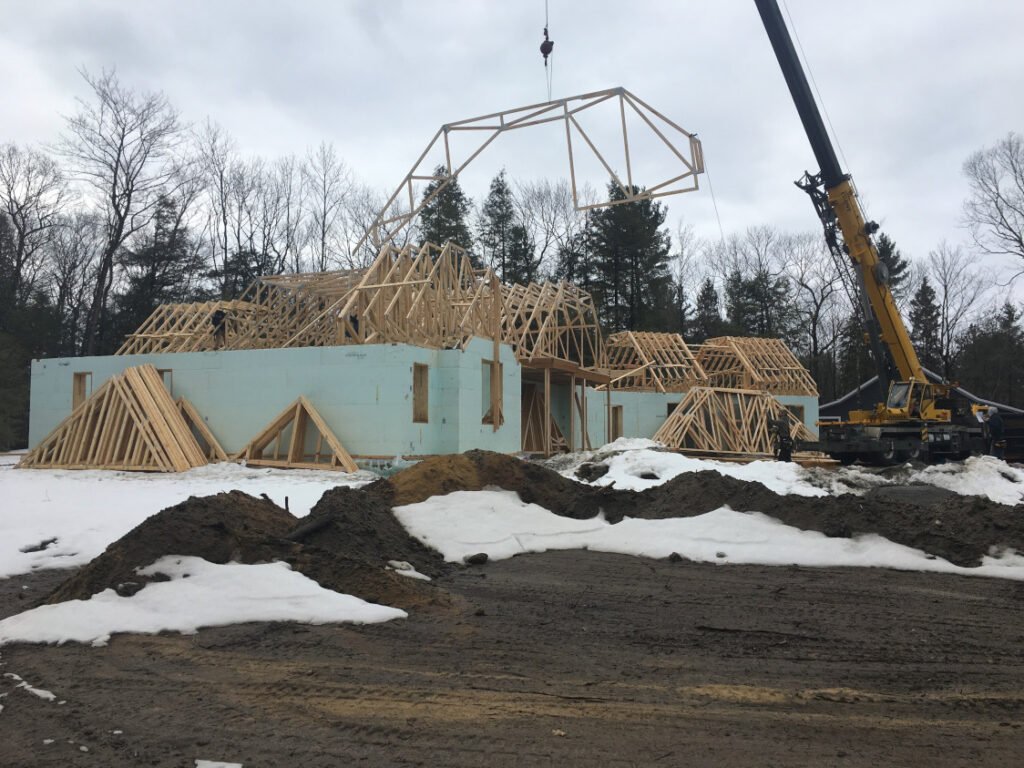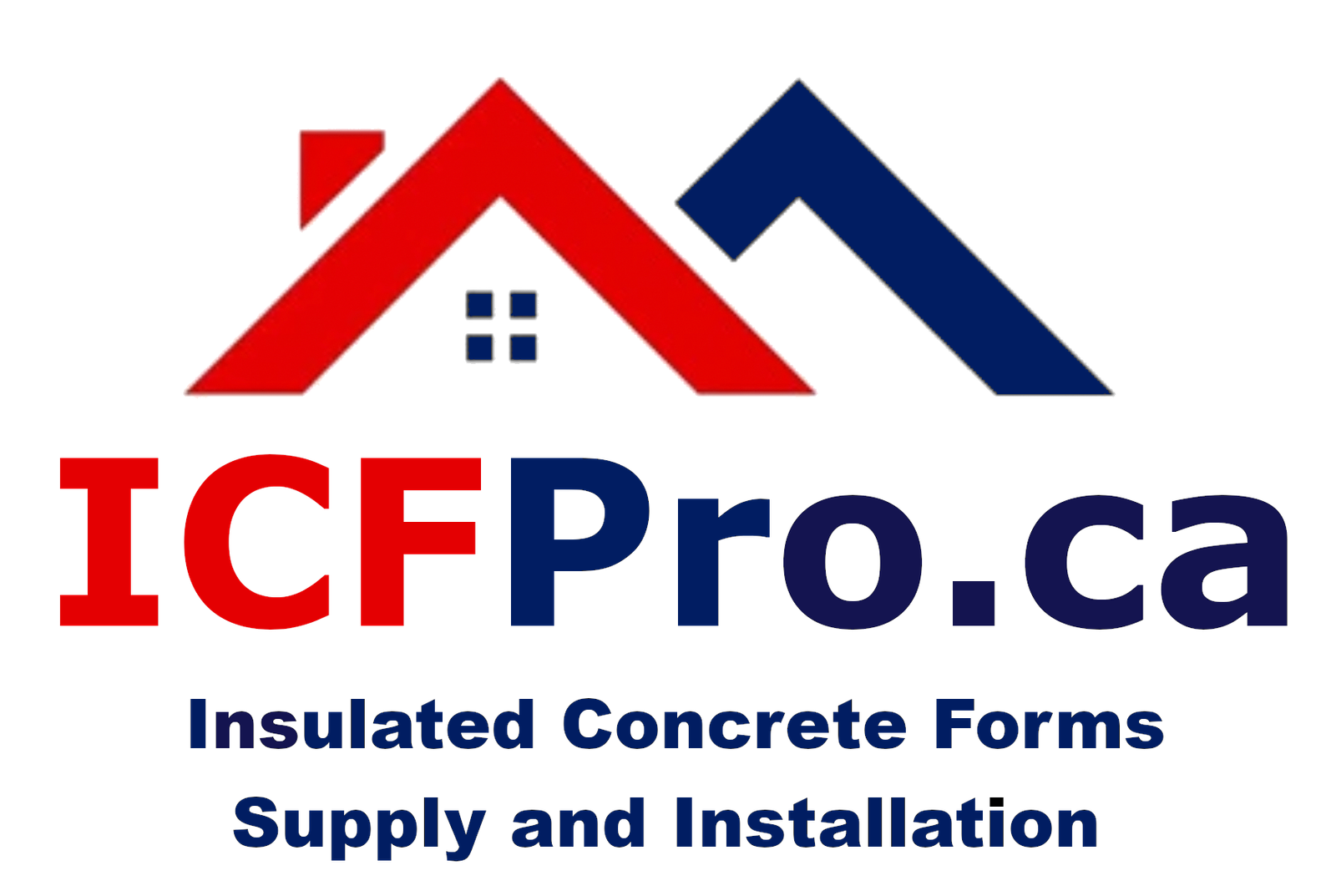ICFPro.ca is a division of ICFhome.ca - Phone 1 866 868-6606 - Direct Line 1 705 533-1633 - Email: info@icfhome.ca
Durability and Resilience: Why ICF Homes Stand the Test of Time

Build a Home That’s Ready for Anything
When you invest in building a home, you’re not just thinking about how it looks today—you’re thinking about how it will hold up decades down the road. You want something solid, something that can handle whatever life (or Mother Nature) throws at it. That’s where Insulated Concrete Form (ICF) construction truly shines.
At ICFPro.ca, we’ve spent decades helping families and businesses build homes that don’t just stand—they thrive. Durability and resilience are at the core of everything ICF stands for. From extreme weather resistance to fireproof capabilities, ICF homes are built for long-term, low-maintenance living. Let’s dive into what makes them so tough and why they’re an ideal choice for homeowners who want peace of mind and lasting value.
What Makes ICF Homes So Durable?
Durability isn’t just about strength; it’s about how well a structure can perform over time with minimal wear and tear. ICF homes excel in this area because of their unique combination of materials and design.
1. Concrete Core: The Backbone of Strength
At the heart of every ICF wall is a solid concrete core reinforced with steel. This gives ICF homes unparalleled structural strength, allowing them to withstand:
- Heavy snow loads (a must for Ontario winters!)
- High winds and storms, including tornado-level gusts.
- Seismic activity, making them suitable even for earthquake-prone areas.
2. Foam Insulation: Protecting Your Home Inside and Out
The rigid foam insulation on either side of the concrete adds another layer of resilience. It protects the concrete from temperature fluctuations, moisture, and external damage, ensuring your walls stay strong for decades.
3. Interlocking Design: Built to Stay Together
ICF blocks interlock like Lego, creating a seamless and airtight structure. This reduces weak points and ensures your home’s walls stay intact and solid, no matter what.
ICF Homes and Weather Resistance
Living in Canada means dealing with some pretty intense weather. From freezing cold winters to hot, humid summers—and everything in between—your home needs to be ready. Here’s how ICF homes are built to handle it all:
1. Withstanding Extreme Cold
Ontario winters can be brutal, but ICF walls provide unmatched thermal performance. The foam insulation and concrete core work together to:
- Prevent Frost Damage: Unlike wood, which can warp or crack in freezing conditions, concrete is unaffected by frost.
- Keep You Warm: ICF’s continuous insulation keeps heat inside, reducing the strain on your heating system and keeping you cozy even on the coldest nights.
2. Defying Heat and Humidity
In the summer, ICF walls keep your home cool and dry by:
- Blocking Heat Transfer: The foam insulation reflects heat away from your home, so you’re not constantly running your air conditioning.
- Preventing Moisture Issues: Because ICF walls are impermeable to moisture, they won’t absorb humidity or allow mold and mildew to develop.
3. Standing Strong Against High Winds and Storms
Ontario’s storms can bring heavy winds, driving rain, and even tornadoes. ICF homes are built to take it:
- Wind Resistance: Reinforced concrete walls can withstand winds of up to 250 mph, far exceeding the capabilities of wood-frame homes.
- Flood Protection: The solid, waterproof nature of ICF walls helps protect your home during heavy rains or localized flooding.
Fireproof ICF Homes: Protecting What Matters Most
No one likes to think about the possibility of a fire, but it’s a reality every homeowner should consider. ICF homes are one of the safest choices you can make when it comes to fire resistance.
1. How ICF Walls Resist Fire
ICF walls are made of concrete and foam—two materials that don’t burn easily. In fact, ICF walls are often rated for 4 hours of fire resistance, compared to just 20-60 minutes for wood-frame walls. This extra time can mean the difference between saving your home and losing everything.
2. Containing the Spread
Even if a fire starts inside your home, ICF walls slow its spread, giving firefighters more time to respond and protect your property.
3. Insurance Benefits
Many insurance providers recognize the fire-resistant qualities of ICF homes and may offer reduced premiums for homeowners who build with ICF.
Pest Resistance: Keeping Unwanted Guests Out
If you’ve ever had to deal with termites, carpenter ants, or rodents, you know how much damage pests can do to a home. With ICF, you can rest easy knowing pests won’t stand a chance.
1. No Wood, No Problem
Pests are naturally attracted to wood because it’s easy to chew through and provides food and shelter. With ICF walls, there’s no wood for them to eat or burrow into.
2. Airtight Construction
The seamless, airtight design of ICF walls leaves no gaps for pests to sneak in. This is especially important for keeping out rodents during the winter months.
3. Moisture Resistance
Since ICF walls don’t absorb moisture, they don’t create the damp conditions that attract pests like termites and mold.
Low-Maintenance Living with ICF Homes
When you build with ICF, you’re not just getting a durable home—you’re getting a home that requires minimal upkeep.
1. No Rot or Decay
Unlike wood, which can rot over time when exposed to moisture, ICF walls remain solid and unaffected. You’ll never have to worry about replacing rotted studs or dealing with structural damage caused by water.
2. Long-Lasting Materials
The foam and concrete used in ICF construction are designed to last for decades. With proper care, your ICF home could easily stand strong for 100 years or more.
3. Fewer Repairs
Thanks to their durability, ICF homes don’t experience the same wear and tear as traditional wood-frame homes. That means fewer repairs and more time enjoying your space.
Environmental Benefits of Durable ICF Homes
Durability isn’t just good for homeowners—it’s good for the planet, too. Here’s how ICF contributes to more sustainable living:
1. Reduced Waste
Because ICF homes last longer and require fewer repairs, they create less waste over their lifetime compared to traditional homes.
2. Lower Carbon Footprint
The energy efficiency of ICF homes means they use less energy for heating and cooling, reducing their overall carbon emissions.
3. Sustainable Materials
Many ICF systems are made from recyclable materials, further reducing their environmental impact.
Why Homeowners Choose ICF for Resilience
Here’s the thing: life is unpredictable. Whether it’s a freak storm, an accidental fire, or just the passage of time, your home needs to be ready for anything. That’s why so many homeowners are choosing durable ICF homes—because they offer peace of mind in an uncertain world.
With ICF, you’re not just building a home. You’re building a structure that:
- Protects your family from the elements.
- Requires less maintenance so you can focus on what matters.
- Adds long-term value to your property.
Let’s Build Something That Lasts
At ICFPro.ca, we’ve been building with ICF since 1995, and we’ve seen firsthand how durable and resilient these homes can be. Whether you’re planning a new build, renovating an older property, or starting a commercial project, we’re here to help you create something that’s built to last.
📍 Request a Free Quote Today → [Get Started]
📍 Learn More About ICF Construction → [Explore Our Services]
Stronger. Smarter. Built for the Future. That’s the ICF way—and it’s how we’ll help you build your next project.
